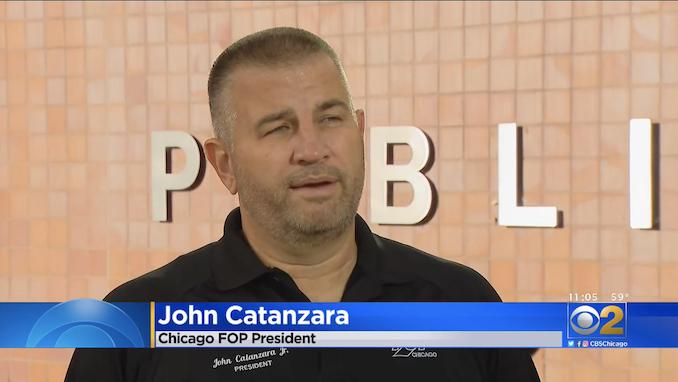If you're not a subscriber learn more here.
If you're not a subscriber learn more here.
Please note that this is a personal newsletter written by Sofia Smallstorm. It is not “the news,” but rather a reflective way of sharing information.
Sofia covers a range of subjects. You …

"An empire always thinks it can afford to make mistakes or incur additional costs. It thinks it is so powerful that this won't change anything. But those mistakes and costs keep piling up….

The dangers of the COVID-19 vaccine spike protein and its interactions with the human immune system, conferring risks of clotting and leakage of blood vessels, are becoming increasingly well known…
Please note that this is a personal newsletter written by Sofia Smallstorm. It is not “the news,” but rather a reflective way of sharing information.
Sofia covers a range of subjects. You …

CAF Note: During the Holiday Season, we typically have Money & Markets and Ask Catherine in the first two weeks of December. This December we will have Money & Markets in the first and the…

Watch this news clip from CBSN Chicago.
John Catanzara is our hero this week for holding the line in the conflict between the Chicago police union and Chicago Mayor Lori Lightfoot over the city’s…
Comments are closed.
To help you live a free and inspired life. This includes building wealth in ways that build real wealth in the wider economy. We believe that personal and family wealth is a critical ingredient of both individual freedom and community. health and well-being.
Nothing on The Solari Report should be taken as individual investment advice. Anyone seeking investment advice for his or her personal financial situation is advised to seek out a qualified advisor or advisors and provide as much information as possible to the advisor in order that such advisor can take into account all relevant circumstances, objectives, and risks before rendering an opinion as to the appropriate investment strategy.
No products in the cart.
Hi Catherine
We belong to an Orlando credit union,
FairWinds and were considering moving more money into it for increased safety. Recently, they bought Citizens National Bank of Oviedo FL.
I thought banks and credit unions were two separate banking vehicles. Can you explain this to me…also do you think this credit union is safer than one that is purely a credit union and not a hybrid.?
Thanks
Donna Fraser
Hi Catherine, Thank you for providing these questions. I am not clear on terms like naked short selling, Bear raids etc. I would also have a difficult time determining how to evaluate the bank’s responses.
Thank you for all the work you do!
Hi Catherine – I connected with a new Bank and have asked for info like you suggest. Here is what I received. While I realize this is a public forum, they did send this to me, so I thought it would be okay to post here. Plus I thought it might help others. What do you think about this Bank? It looks good to me but I wanted you to weigh in.
——————————–
Thank you so much for your inquiries earlier this week about Bell Bank and how safe your deposits will be with us. Below are some reassurances on why your deposits are safe with Bell Bank:
· We are all benefited by the swift action taken by the FDIC and Federal Reserve over the weekend to support banks and help prevent any type of “run on the banks” contagion that could have impacted the entire banking industry.
· The failed banks (Silicon Valley Bank and Signature Bank) both had some very unique attributes (crypto/tech sector exposure, large bond portfolios, concentrated deposit bases) that exposed them to catastrophic trouble as interest rates rose. Bell Bank does not share those attributes.
· Our bank has virtually no nonperforming loan issues and is well capitalized – and we are strengthened by the fact we have no debt at our holding company.
· Bell Bank has a very diverse deposit base. While both SVB and Signature reportedly had the vast majority of their deposits in uninsured accounts, Bell Bank (like most of our community bank peers) has nearly 90% of our deposits insured by the FDIC, which creates great stability. We also have excess liquidity on our balance sheet.
· Perhaps our greatest strength: Bell Bank is privately owned and therefore not subject to sudden downward price movements that can cause capitalization shortfalls for publicly traded banks.
See below for quantitative reassurance on our asset quality:
· Bell Bank maintains an asset structure centered in a diversified loan and lease portfolio. As of 12/31/22:
o Loan and lease portfolio represents 87% of total assets, investments represent 8% (zero cryptocurrency exposure), other assets represent 5%.
o Loan and lease portfolio composition consists of 43% commercial real estate, 27% residential real estate, 18% commercial & industrial loans, 12% agricultural and other loans.
o No loan/lease categories exceed regulatory concentration thresholds.
· Bell Bank has maintained strong asset quality and outperformed industry peers both currently, and throughout the Great Recession.
o The following metrics are contained in the Bank’s publicly available Uniform Bank Performance Report (UBPR) – full report can be accessed here: FFIEC UPBR Reports
Although we expect some continued market volatility and macroeconomic uncertainty as we move forward, Bell Bank remains well-capitalized, financially strong and positioned well for long-term success.
Thank you Catherine for your insights. I have been following your YouTube interviews for a few years and because of you I began preparing over 2 years ago. Now, I just have to sort out a better banking system here in UK.
Excellent information, thank you to everyone
Hello Catherine. I didn’t want this to go under the radar, as it could be important regarding Credit Unions. On twitter of all places, the NCUA posted this message
“ The NCUA seeks a talented Attorney Advisor (General) responsible for legal research on operational matters of federally insured credit unions, including federal regulations and legislation affecting the NCUA and financial services industry. https://go.ncua.gov/3lNW9dn “
Do you know of any laws, or regulations that could be in the works for changing the way Credit Unions asre structured? I hope I’m merely over suspicious.
Just as a FYI, the U.N. actually has their own CU membership too. Hoping They won’t be recommending Attorney Advisors
Tons of Laws related to new regulation,including crypto and money laundering, FedNow and CBDC
These questions are great. However, I need the other side of the equation as well. I would appreciate some guidance on how to evaluate the answers I get. I am an economic layman and I am not confident that I would be able to understand their answers.
Phyllis – Thank you for saying this. I am worse — a complete ignoramus, who barely understands the questions. For example, I thought all deposits were insured (Q#2).
Catherine – I subscribed to Solari because I want to support you and your work and because I want to learn. I don’t expect you to teach me, but I wonder if you would be willing to create a section called Money 101 with various articles you would recommend for dummies, I mean, novices, like myself.
hi catherine im poor single grandmom and saved my stimulus monies a lil over 3k and dont wanna loose it in a dollar crash…saved hoping to move out of CA but cant find safe sec8 housing elsewhere could you tell me please what to do with my moving money so it doesnt disintegrate into nothing?
Sorry, I’m not Catherine, but we’re rather in the same predicament. With limited amounts of money as such, the best you can do is make sure you have enough food (like freeze dried long term), small garden if possible & good water supply and maybe buy some junk silver to preserve a bit of cash (Treasure Island Coins is one place).
Catherine,
Looks like TN is being targeted with the school shooting incident and then Madonna is also protesting the ban on gender surgeries for children in TN. The shooter was supposedly “gender confused” from one report that i read, so maybe this is all one big coincidence..
Wish Barak Obama was as worried about the vaccines that are injuring and killing kids as he is the assault weapons.
How much you want to bet that there are a lot more kids being killed as a result of vaccines than of the other operation to remove 2nd amendment rights.
It’s also suspicious that it was a Christian school targeted. The deaths of course are very tragic and I’m not making light of that at all. Real people die in these operations.
I’m only questioning the timing, location and motivation of this new incident. It looks like it was designed deliberately to get some conservatives on board with the agenda to ban guns.
As I mentioned a while back, 15 years ago Darpa, according to their website was making “super soldiers” . That was the same year that Cho did the shooting at Virginia Tech a university with ties to Military etc. .Cho’s sister worked in a very high level military intel company. Cho had no psychiatric history, no history of violence.
it was the same day that Alberto Gonzales was having Congressional hearings to discuss the suspicious firings of 8 federal prosectors, one who was doing Grand Jury investigation into the Duke Cunningham case. The case also was connected to the DC Madam, Dick Cheney, Porter Goss, head of CIA and I’ll leave it there.
What was stunning to me was how quickly the news cycle changed from the hearings to the 33 ( occult number ) of people killed.
The point is, none of these bizarre killings have been a coincidence. They are all very carefully planned events.
Hi Catherine, all,
You really DO NOT NEED TO WORRY, UNLESS YOU ARE GOING TO DO BUSINESS WITH YOUR ACCOUNT THAT IS GREATER THAN THE DEPOSIT INSURANCE LIMIT OF $250,000.
Moreover, remember the CAMEL rating. This is an acronym that stands for capital adequacy, asset quality, management quality, earnings condition and robustness, and liquidity availability. You can ask bank management for its CAMEL rating. Even if the bank or other type of financial institution is relatively small, under perhaps $500mm in assets, it may be a bank with stock that is publicly traded. In that case it will have Annual and perhaps even quarterly reports it must file with the SEC. If one is to be a depositor, of deposits greater than the deposit insurance limit, (over $250,000) and this is in substance different than an investor, as a depositor over the deposit insurance limit or an investor, you are presumed to be sophisticated and on behalf of your means, you need to do due diligence with your counter-party, in this case your bank.
Virtually All banks and the former ‘thrifts’, referring to the savings & Loans, federal savings, and FDIC insured savings banks and mutuals in the past except for the reagan era with scherf/bush was the ‘thrift’ czar…. and he blew up that sector as we recall under reagan/volcker… but for virtually all financial institutions regulators produce a CAMEL from the quarterly call report that the financial institutions have to file, ie a quarterly regulatory report of their income statement, balance sheet, cash flow statement, subschudules of the (asset) quality of the loan portfolio, loan type, deposit and maturity of deposits, even schedules on asset/liability matching, capital adequacy, which the regulators (FDIC, former office of thrift supervision now rolled up into the office of the Comptroller of the Currency, which is embedded in the Treasury Department.
These ‘CALL’ reports and the former TFRs, ie the Thrift Financial Condition reports were and are publicly available. What the regulators want to keep secret, they block or ‘redact’ in a way.
In any single, even all banks are given a CAMEL rating of which 5 is the best and 1 is the worst. Banks with 4 or 5 tend to be public about this and if it’s 3 or below, then there are issues and it is easy to go to the FDIC and or Comptroller or FED websites and look up if there was a regulatory administered disciplinary action against the bank, such as a MOU, ie a memorandum of understanding, or a ‘written agreement’ or a cease and desist. All are administered with varying degrees of regulator ‘discipline’ ie slap on the wrist is the MOU, vrs demanding management change is the Cease & Desist.
All your questions in effect still hang on what above i mentioned. my experience directly for years with these issues see here: https://apsoras1.wordpress.com/2017/05/16/andrea-psoras-resume-for-financial-sector-mergersacquisitions/ https://apsoras1.wordpress.com/category/professional-cv-resume-transactions-list-details/
Clearly, better to not be in a bank that goes under. FDIC is not believed to be a timely pay.
And credit unions or at least one of my credit unions does not participate in FDIC, they participate in NCUSIF, that is who insures their funds. Are you familiar with NCUSIF, Catherine? Can you take the time at some point to talk about NCUSIF?
Recommend you check out the FDIC and NCUSIF websites and then discuss with your credit union how it works.
The CAMEL ratings are not released to the public. Is there a way we can find out what they are for specific banks?
Please see ICBA’s letter dated March 3, addressed to:
Rachel Wallace
Deputy General Counsel and Chief Operating Officer Office of Science and Technology Policy
Executive Office of the President
1650 Pennsylvania Avenue
Washington, DC 20504
RE: Request for Information – “Digital Assets Research and Development” (88 FR 5043)
https://www.icba.org/docs/default-source/icba/advocacy-documents/letters-to-regulators/comments-on-digital-assets-research-and-development
Thanks
I recently sent a long letter (based on Carolyn’s bank letter – thank you)
to our local bank here in Idaho. I sent hard copies to all the officers of the bank and the board of directors. So far the silence is deafening. So much for that. While the proposed questions for banks are great questions, I hardly think answers will be forthcoming (our bank is private) and they are obviously cagey around this issue. I did however, look up the national organization for community banks – Independent Community Bankers Association and found this:
March 7, 2023
The Honorable Tom Emmer U.S. House of Representatives Washington, D.C. 20515
Dear Representative Emmer:
On behalf of community banks across the country, with nearly 50,000 locations, thank you for introducing the Central Bank Digital Currency Anti-Surveillance State Act (H.R. 1122), legislation to prohibit the Federal Reserve from offering products or services directly to an individual, maintaining an account on behalf of an individual, or issuing a central bank digital currency directly to an individual.
ICBA adamantly opposes the direct provisioning of retail deposit accounts by the Federal Reserve known as “FedAccounts.” FedAccounts would compete directly with checking and savings accounts offered by community banks and raise serious privacy concerns, as they could potentially be used by the government to track consumer financial transactions.
A central bank digital currency (CBDC), under consideration by the Federal Reserve and the Biden Administration, presents many of the same objections as FedAccounts. Notably, it would directly compete for bank deposits that fund lending. Any type of direct-to-consumer CBDC could create an outflow of deposits from community banks with an adverse impact on credit availability.
Thank you for introducing H.R. 1122, which would prohibit both FedAccounts and a direct-to-consumer CBDC. ICBA is pleased to support this important legislation.
Sincerely, /s/
Rebeca Romero Rainey President & CEO
Excellent!
Thank you for this info!